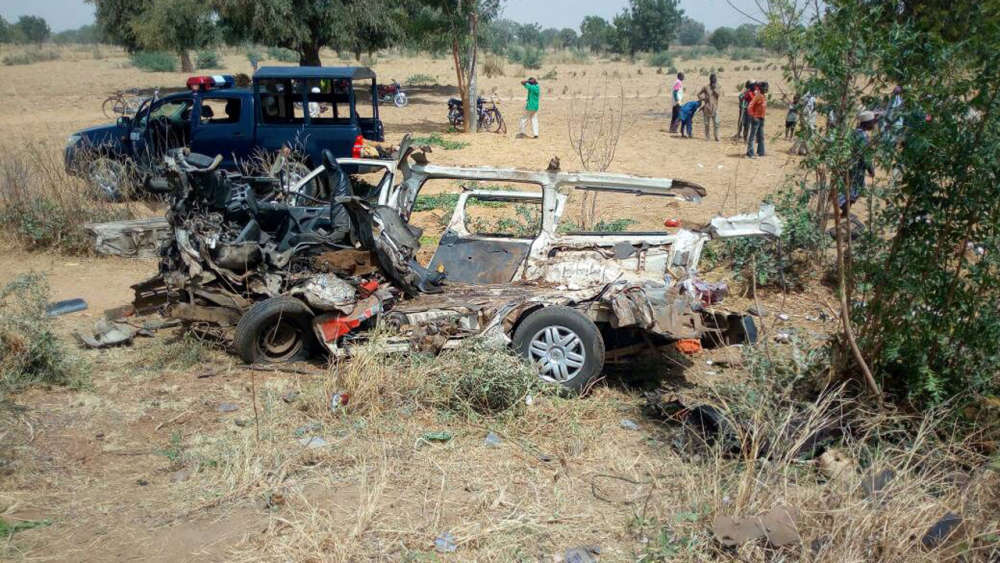
On 5 December 2022, Yusuf Sulaiman rode a bicycle and was heading to a local market in Danbatta town in Kano State when he was knocked down by an overspeeding vehicle.
“I was on my bicycle going to the market when the car hit me from behind. I just woke up in Danbatta Hospital,” he said.
Sulaiman is now partially paralyzed and may never walk again unless he gets half a million naira for urgent surgery.
“One day after they transferred me to National Orthopaedic Hospital, Dala in Kano, and after the scans the doctors confirmed that my spinal cord was broken.
“In the last weeks and months, I have been on this bed because I can’t even move. The doctors said I must go through surgery to be able to walk again, and the money is N800,000.
“But we only have N300,000. Please I need assistance,” he added.
Sulaiman is lucky to survive the incident, as thousands of Nigerians have lost their lives to road crashes in the last few years.
Auto Crash Statistics
In November 2022, an auto crash along the Kano-Ringim Road claimed 14 lives.
Nineteen others died in another accident on the Kano-Zaria Highway in January 2023, 17 died on Wudil-Bauchi Road in Albasu LGA in March, and 16 were killed in May in Takai Village.
Eighteen other persons died in an auto crash in Zakirai town in Gabasawa LGA on 4 June.
The Federal Road Safety Corps (FRSC) Sector Commander in Kano, Ibrahim Sallau Abdullahi, linked all these incidents to excessive speeding.
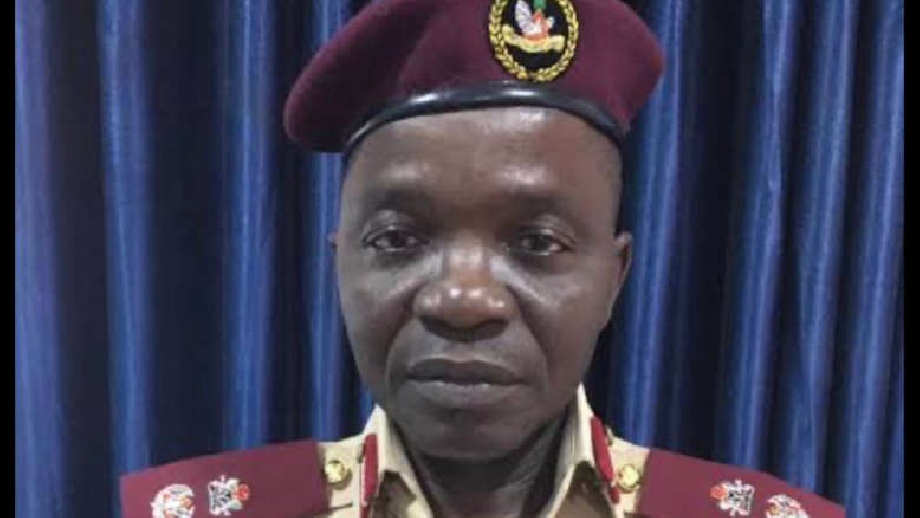
Data from the World Health Organisation (WHO) puts the number of people killed yearly via road accidents in Nigeria at 41,693.
This implies that auto crashes kill faster than HIV, COVID-19, and other life-threatening diseases.
Commercial Drivers Yet to Install Speed Limiter Devices
In 2016, the FRSC introduced the Speed Limiter Device to halt avoidable car crashes. But seven years after, most commercial drivers in Kano do not have the device.
Idris Garba Kan-karofi, a commercial driver at Kano Line, linked their defiance to financial constraints and the device’s price.
“To be frank I don’t have the device, but thank God I drive carefully. If the device is N15,000 or even N20,000, a lot of us would have purchased it. But with this hardship how can someone pay N40,000 for a speed limiter device?” he wondered.
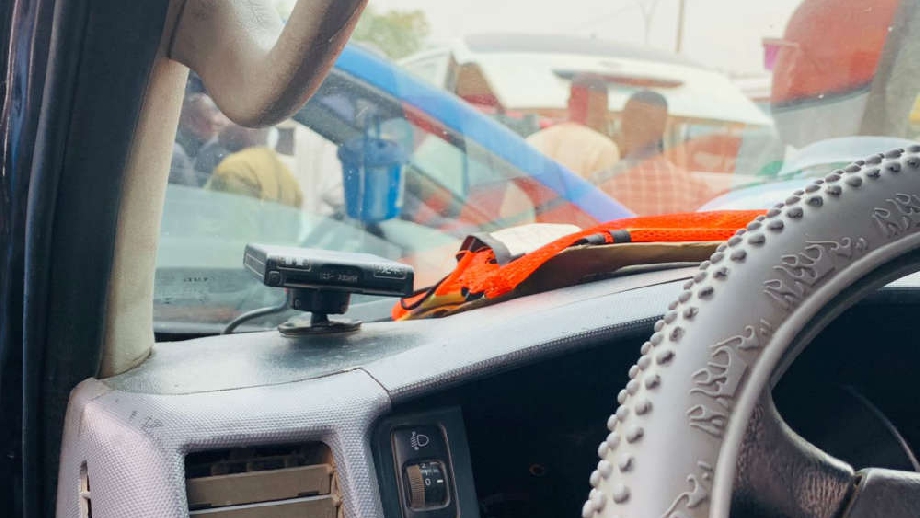
Another commercial driver at Ramin Alkari, a Motor Park along Zaria Road, identified as Naziru Driver, said he doesn’t have the device because he can’t afford it.
“Honestly I don’t have the device because I can’t afford it. Whenever I plan to install it my car will end up developing faults. So, I end up fixing my car. Let me be honest, most of us can only afford the device if government subsidizes it for us.”
However, Buhari Ibrahim who had installed the device says it does not stop him from accelerating beyond the recommended 100km per hour.
“The device doesn’t work as they claimed. I installed it nine months ago for N35,000, but I still drive at 180 km per hour on the highway.”
Tanko Almakura, another commercial driver who plies the Abuja to Kano route showed me the device in his bus, as he smiled and described it as another revenue-generating device.
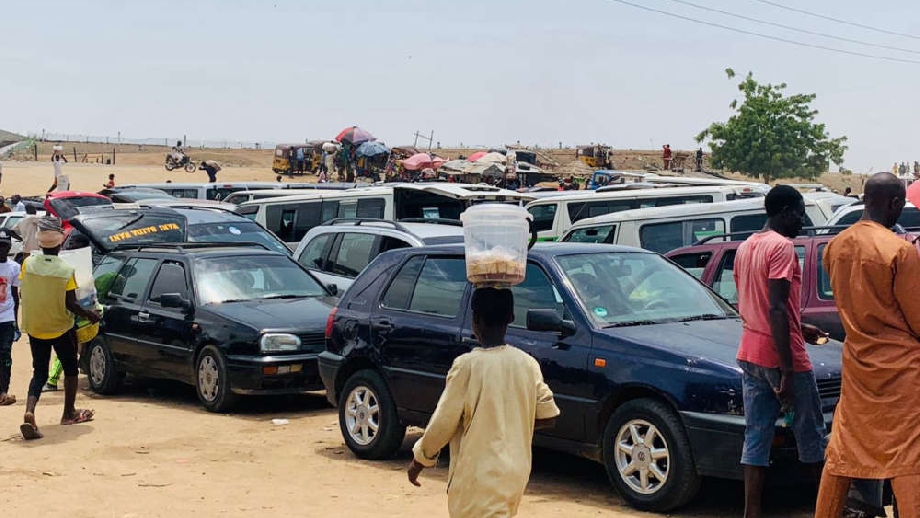
“My Homa bus has the device installed, but this thing doesn’t work. I drive as I want, but the important thing is I use my head while driving. We drivers just believe they introduced it to make money.”
Reactions of Speed Limiter Device Vendors and FRSC Kano Sector Commander
Abdulrahman Tyav, a representative of De AKASTEN GLOBAL LIMITED, one of the approved speed limiter vendors, debunked the impression that the device does not limit the speed of vehicles.
Tyav, however, accused some drivers of disconnecting the device.
“For trailers, we programmed it at 60km per hour, while buses and golf cars are programmed at 90 and 100kmrespectively. So if you see any driver driving beyond that he disconnected the device,” he said.
The Sector Commander of FRSC in Kano, Ibrahim Sallau Abdullahi, corroborated Tyav's claim, stressing that the device works well but that some drivers manipulate it.
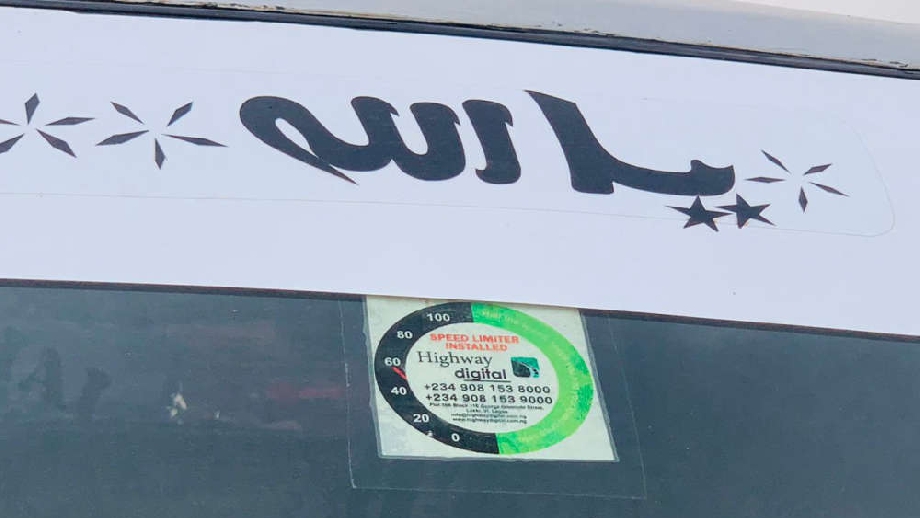
“The fact remains that there’s nothing about technology that cannot be manipulated, and if somebody tells you they installed a speed limiter in his vehicle and he is still going beyond the prescribed speed limit you should know that it’s either the device was not properly installed or it’s tampered with.”
He said that the command intercepted and installed more than 406 speed limiter devices on commercial vehicles in the first half of 2023.
“We don’t have an account where we put money for the speed limit, it’s usually between the drivers and the vendors. And from January to June this year, we installed 406 of these devices to some erring commercial drivers, and we would continue to do so until all the commercial vehicle owners install the device,” he said.
Auto crashes have become Nigeria’s number one public enemy in recent years, and authorities are trying to enforce the use of speed limiter devices and warning against the tampering of same.


